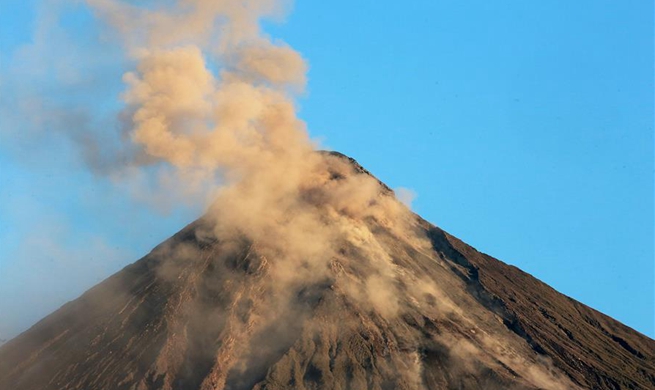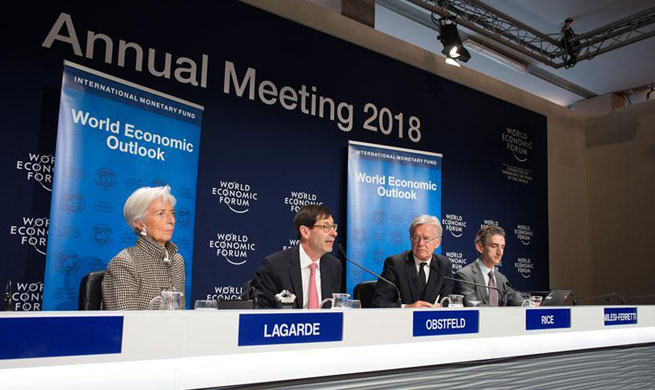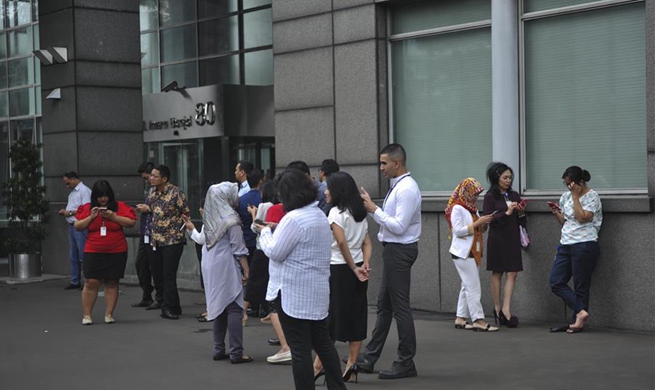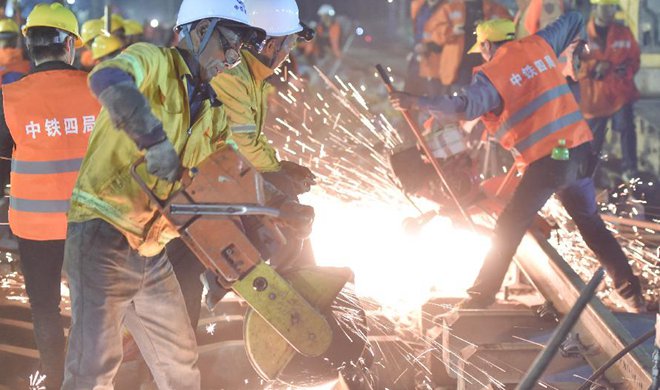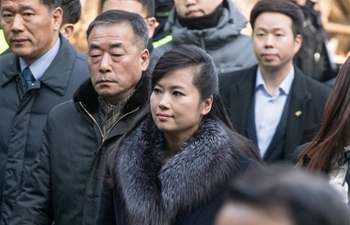HONG KONG, Jan. 23 (Xinhua) -- Hong Kong scientist Tang Benzhong and his team bagged the first-class State Natural Science Award (SNSA) 2017 amid fierce competition, which has highlighted Hong Kong's advantages and capabilities in basic research, according to scientists in Hong Kong.
The SNSA, regarded as China's top honor in the field of natural science, aims to commend scientists for their academic excellence in basic and applied research, while its most prestigious first-class SNSA had once been withheld for as long as nine years.
"I've always enjoyed doing my research," said Tang, a chemistry professor from the Hong Kong University of Science and Technology (HKUST), in a recent interview with Xinhua, adding that creativity and curiosity are one of the most important qualities of being a scientific researcher.
Tang and his team was awarded for their achievements in research on aggregation-induced emission (AIE), which was first discovered in 2001 and can be applied in life science, medicine and applied science, such as long-term tracking and visualizing of tumor tissues or cancer cells.
Chen Guanhua, a chemistry professor from the University of Hong Kong said that as a well-developed and convenient place, Hong Kong is attractive towards international talent, and the relaxing atmosphere has allowed scientists to excel in their scope of interest.
Including Tang, a total of six prizes went to research projects that involved Hong Kong scientists in SNSA 2017.
"Although Hong Kong has long been business-oriented, the application of science and technology has always been among the top class in the world," Nancy Ip, HKUST's vice president for research and graduate studies, said.
Ip told Xinhua that Hong Kong has a solid foundation in basic research, a sound environment and platform for scientific research, as well as a pool of talent from different fields, which explains why Hong Kong can keep having breakthroughs in basic research.
According to the latest research assessment exercise report done by the University Grants Committee of Hong Kong, 12 percent of the research submissions made by the eight publicly-funded institutions were judged by international experts as "world leading" standard, while 34 percent attained "international excellence" and the remainder overwhelmingly attained "international standing" or "regional standing."
The award-winning project led by Tang involved scientists from mainland institutions, which is a good example of scientific research collaboration between Hong Kong and the Chinese mainland.
In her maiden policy address delivered in October 2017, Hong Kong Chief Executive Lam Cheng Yuet-ngor said that developing innovation and technology is one of the priorities of the Hong Kong Special Administrative Region's government.
The development of the Guangdong-Hong Kong-Macao Greater Bay Area (Bay Area) and collaboration between Hong Kong and Shenzhen will connect the upstream, midstream and downstream sectors of innovation and technology industries, thereby developing an international innovation and technology hub in the Bay Area, according to Lam.
Li Zexiang, a professor of Electronic and Computer Engineering of HKUST, said that against the backdrop of "Bay Area" and "smart era," it is suggested that Hong Kong grasp the opportunity of developing innovation and technology, making it a new drive for the development of the Bay Area.










